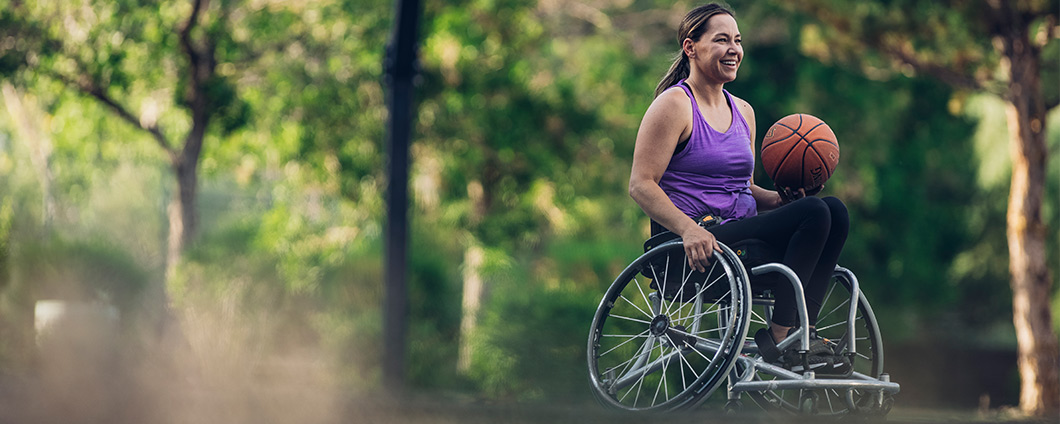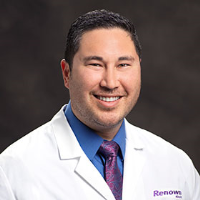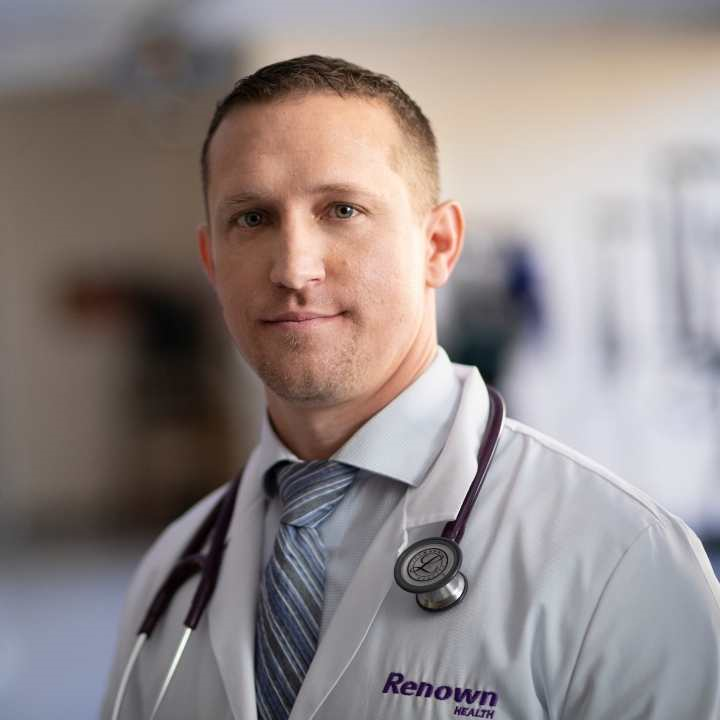Search
Results for 'rehabilitation'
Clear-
Preventing Spinal Cord Injuries: What to Know
If you're not taking safety precautions during mountain sports, you could be at risk for a spinal cord injury. Dr. Benjamin Pence of Renown Rehabilitation Hospital explains the best way to prevent this serious injury. Mountain sports are a big part of the winter season here in our area, but if you’re not practicing all the proper safety techniques, you could end up with a serious spinal cord injury. Benjamin Pence, MD, Renown Rehabilitation Hospital, is here to offer tips to prevent this serious injury while you’re out enjoying what the Truckee Meadows has to offer. What is the spinal cord? The spine stretches from the base of your skull to the coccyx (commonly referred to as the tailbone). Your spine is made up of 24 vertebrae—seven cervical, which are in your neck, 12 thoracic, which are in your chest, and five lumbar, which are in your lower back. There are ligaments and muscles attached to each vertebra. These facilitate back movement and protect the bones from damage. There is cartilage between each vertebra which acts as a shock absorber for your spine. Finally, the spinal cord is a long, thin, tubular bundle of the nervous tissue and support cells that is enclosed in the spinal canal and send signals from the brain to everything from your arm and leg muscles to bowel and bladder function. The brain and spinal cord together make up the central nervous system.
Read More About Preventing Spinal Cord Injuries: What to Know
-
Renown Nationally Recognized for Providing High-Quality Stroke Care With Three American Heart Association Recognitions
The Renown Neurovascular and Stroke Program and Renown Rehabilitation Hospital teams provide expert emergency stroke care and comprehensive neurovascular care and rehabilitation services. The American Heart Association presents Get With The Guidelines®- Stroke Gold Plus awards for proven dedication to ensuring all stroke patients have access to best practices and life-saving care. Renown Health emergency, medical and surgical providers have received three American Heart Association’s Get With The Guidelines® awards. These awards demonstrate commitment to ensuring stroke patients receive the most appropriate treatments according to nationally recognized, research-based guidelines; reducing disabilities and increasing the number of lives saved. Every 40 seconds, someone in the U.S. has a stroke. Stroke is the 5th leading cause of death in the U.S. and the main cause of adult disability. Studies show patients recover better when providers consistently follow treatment guidelines. Get With The Guidelines puts the expertise of the American Heart Association and American Stroke Association to work for hospitals nationwide, helping ensure patient care is aligned with the latest research and evidence-based guidelines. “A stroke is an extremely serious condition that requires emergent medical treatment. The faster treatment is provided, the lower the risk of brain injury. We are proud of our thousands of physicians, nurses and clinicians who consistently practice exceptional patient care by adhering to the latest treatment guidelines,” said Brian Erling, MD, MBA, President and CEO, Renown Health. “Get With The Guidelines makes it easier for our teams to put proven knowledge and consistent protocols to work on a daily basis, which studies show can help people live longer and better lives.” “As a participant in Get With The Guidelines programs, Renown qualified for the awards by demonstrating that physicians and clinicians across our integrated academic health system are committed to improving quality care for stroke patients,” said Bill Plauth, MD, MMM, CPE, Chief Medical Officer for Renown Health and Associate Dean for Clinical Affairs at the University of Nevada, Reno School of Medicine. “If you or a loved one is experiencing a stroke, call 911, as you need skilled medical care immediately. Stroke care focuses on helping people recover as much function as possible and return to independent living. The Renown Neurovascular and Stroke Program and Renown Rehabilitation Hospital teams provide expert emergency stroke care and comprehensive neurovascular care and rehabilitation services.” “We are incredibly pleased to recognize Renown Health for its commitment to caring for patients with stroke,” said Steven Messe, M.D., volunteer chairperson of the American Heart Association Stroke System of Care Advisory Group and professor of neurology and director of fellowships of neurology at the Hospital of the University of Pennsylvania. “Participation in Get With The Guidelines is associated with improved patient outcomes, fewer readmissions and lower mortality rates – a win for health care systems, families and the northern Nevada community.” Renown also met specific scientific guidelines as a Primary Stroke Center/Comprehensive Stroke Center, featuring a comprehensive system for rapid diagnosis and treatment of stroke patients admitted to the emergency department. “Renown Regional Medical Center is the only designated Comprehensive Stroke Center in northern Nevada,” says Benjamin Pence, DO, Director, Institute for Neurosciences at Renown. “This means that we have the highest level of certification to receive and treat patients with the most complex strokes. Our Institute for Neurosciences team is led by the area's top neurologists, who educate our UNR medical students and residents, as well as conduct research studies involving new ways of preventing, diagnosing, and managing neurological disorders. We care for patients suffering from nerve and brain disorders such as stroke, headache, epilepsy, cerebral aneurysms, and other acute conditions. We also monitor and develop treatment options for patients with memory, neurodegenerative, and movement disorders such as Alzheimer’s, Multiple Sclerosis or Parkinson's Disease.” Renown Health also received the American Heart Association’s Target: Stroke Honor Roll Elite award. To qualify for this recognition, hospitals must meet specific criteria that reduce the time between an eligible patient’s arrival at the hospital (within 60 minutes or less) and treatment for at least 85 percent of applicable patients. “It is an honor to be among the American Heart Association’s Stroke Honor Roll Elite award recipients,” said Bret Frey, MD, president of Northern Nevada Emergency Physicians Care teams at Renown Health. “We adhere to these rigorous guidelines daily and demonstrate our unwavering commitment to ensuring more people in northern Nevada receive leading emergency and trauma care and the gift of extended, healthier lives.” Renown Health also received the American Heart Association’s Target: Type 2 Diabetes Honor Roll - Stroke award, ensuring patients with Type 2 diabetes, who might be at higher risk for complications, receive the most up-to-date, evidence-based care when hospitalized due to stroke. This award is given to hospitals that qualify for the silver level or higher achievement award within the Get With The Guidelines – Stroke program and achieve an overall Diabetes Cardiovascular Initiative Composite Score of more than 80 percent. About Renown Health Renown Health is the region’s largest, locally governed, not-for-profit integrated health care network serving Nevada, Lake Tahoe, and northeast California. With a diverse workforce of more than 7,500 employees, Renown has fostered a longstanding culture of excellence, determination, and innovation. The organization comprises a trauma center, two acute care hospitals, a children’s hospital, a rehabilitation hospital, a medical group and urgent care network, and the locally owned not-for-profit insurance company, Hometown Health. For more information, visit renown.org.
-
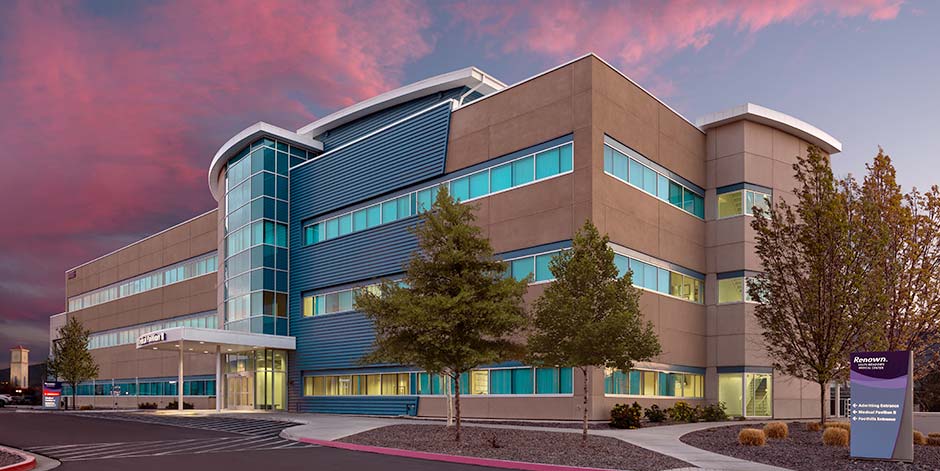 Renown Medical Group - Spine, Sports & Pain MedicineRenown Medical Group - Spine, Sports & Pain MedicineHours
Renown Medical Group - Spine, Sports & Pain MedicineRenown Medical Group - Spine, Sports & Pain MedicineHours
Mon-Sat6 a.m. - 6 p.m.SunClosed -
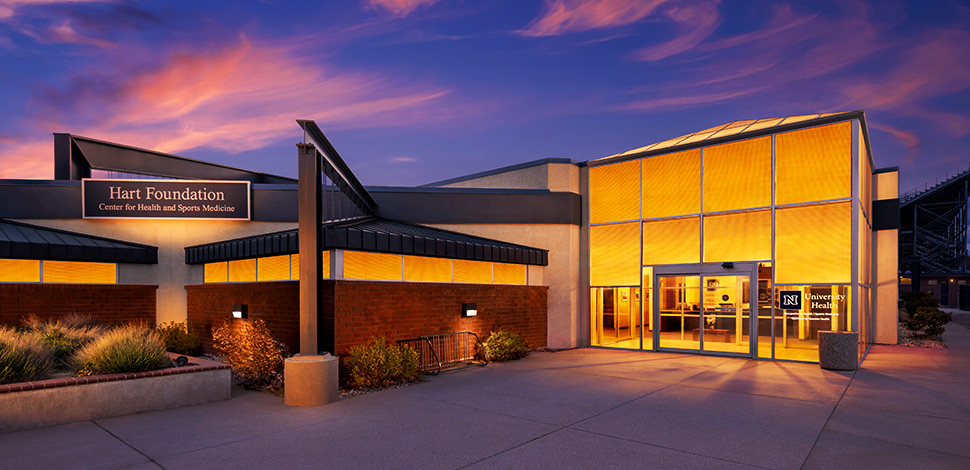 University Health Sports MedicineUniversity Health Sports MedicineHours
University Health Sports MedicineUniversity Health Sports MedicineHours
Mon-Fri8 a.m. - 5 p.m.Sat-SunClosed -
Know Before You Go
Grab your skis, goggles, coat – and don’t forget that helmet. Skiing and snowboarding are fun activities for all ages but come with the risk of injury. Read on for tips to make it a safe day on the mountain. Daydreaming about your next trip to the slopes? We talked to Jared Worchel, DO, about his top tips for gearing up. Get the Gear Before you head out to ski or snowboard, make sure you have all your gear ready and in good condition. Everything should fit correctly so that it keeps you as safe as possible. Wearing proper gear will also help keep you warm. Items to check on before you head out include: Boots Bindings Goggles Poles Helmet Outwear Gloves Pack water and snacks in case the drive takes longer than you except due to weather or traffic. You’ll also want to make sure that your cell phone is fully charged before you head out in case you need to contact friends of staff for help while on the mountain. Helmet, Helmet, Helmet Having a helmet that fits correctly is the most important thing you can do to prepare for a safe day on the mountain. According to a National Ski Areas Association study, helmet use has increased over the last 15 years, with 80 percent of skiers and snowboarders using helmets. Schubert would like to see that number increase to 100 percent. “If you have a head injury it could take you out for the rest of your life,” Dr. Worchel said. “The most important things to think about when fitting a helmet are making sure that it really fits you appropriately. You want to go into a store and try on as many different helmets as they have available. I know it’s tempting to buy one online, but you’re never going to know if it fits correctly.” If you are in an accident, your helmet’s fit can help protect you. Dr. Worchel has some tips on fitting: A helmet should fit low and snug over the head. Make sure that the helmet doesn’t wiggle or feel loose. Look for a model that has adjustability in the back, which will help you make sure it fits snugly. F ind a helmet with a chin strap that will help it stay in place throughout the day.




